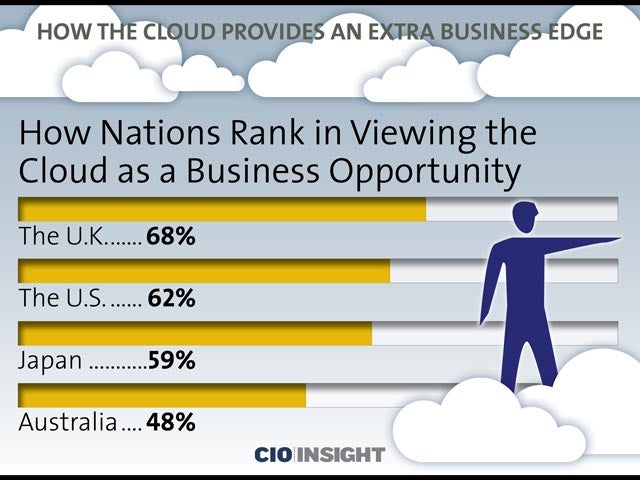
How the Cloud Provides an Extra Business Edge
 Extra Edge
Extra Edge
81% of cloud-based software users surveyed said the cloud provides them with a competitive advantage over rivals.
 Leveraged Asset
Leveraged Asset
51% of senior execs are leveraging the cloud to access elements of their business management software, especially tools providing CRM and e-commerce.
 Market Shakeup
Market Shakeup
46% said new, disruptive competitors are motivating their organization to transform, as six out of 10 said they’ve had such a competitor emerge in their industry in the past five years.
 Cyber-Universe
Cyber-Universe
37% of the executives surveyed said digitalization is creating an urgency to implement organizational change.
 Fresh Ideas
Fresh Ideas
24% of the respondents cite new business models as a major driver for change.
 Offline Effort
Offline Effort
22% said their company doesn’t sell online to customers, but plans to do so in the future.
 Switching Channels
Switching Channels
31% expect to change their distribution channels within the next 12 months, and 50% of these execs said they’re likely to sell directly to end users.
 How Nations Rank in Viewing the Cloud as a Business Opportunity
How Nations Rank in Viewing the Cloud as a Business Opportunity
The U.K.: 68%, The U.S.: 62%, Japan: 59%, Australia: 48%